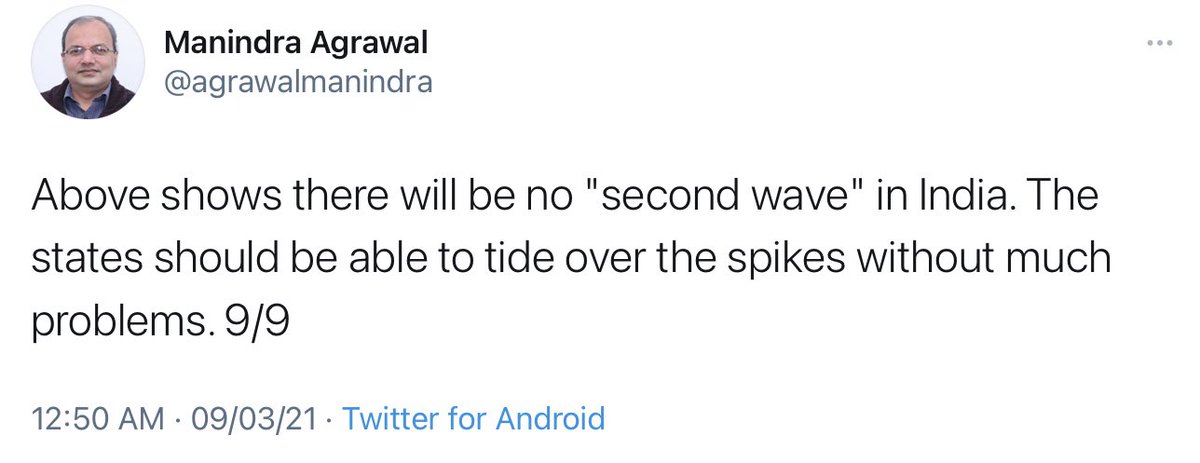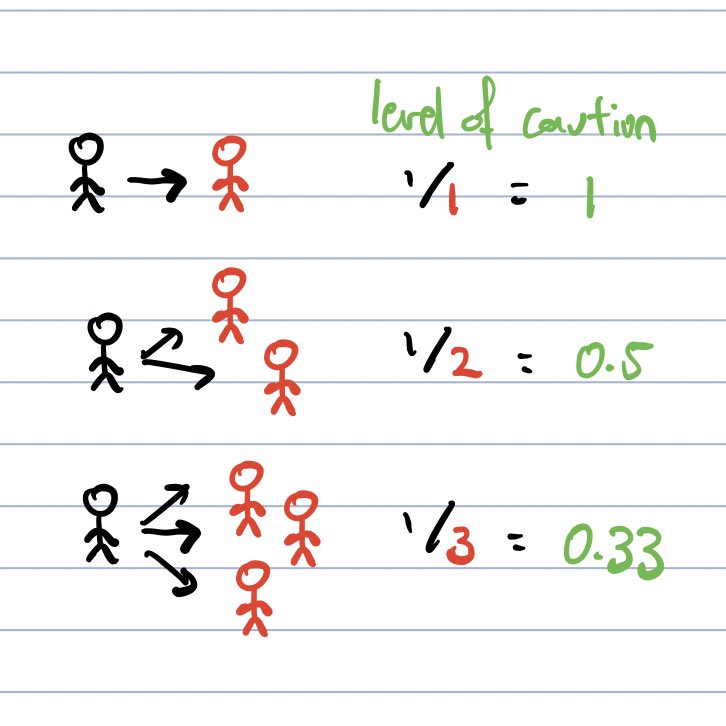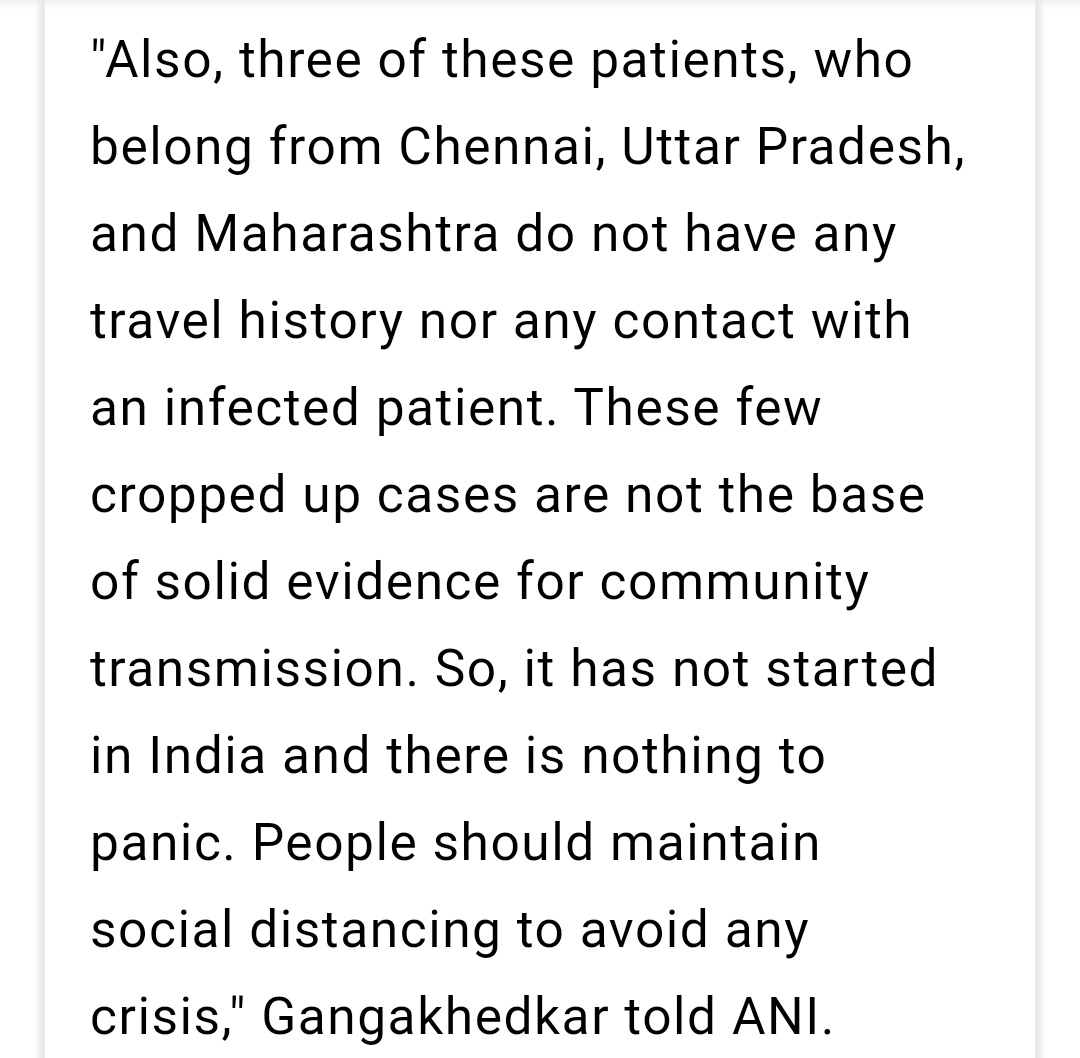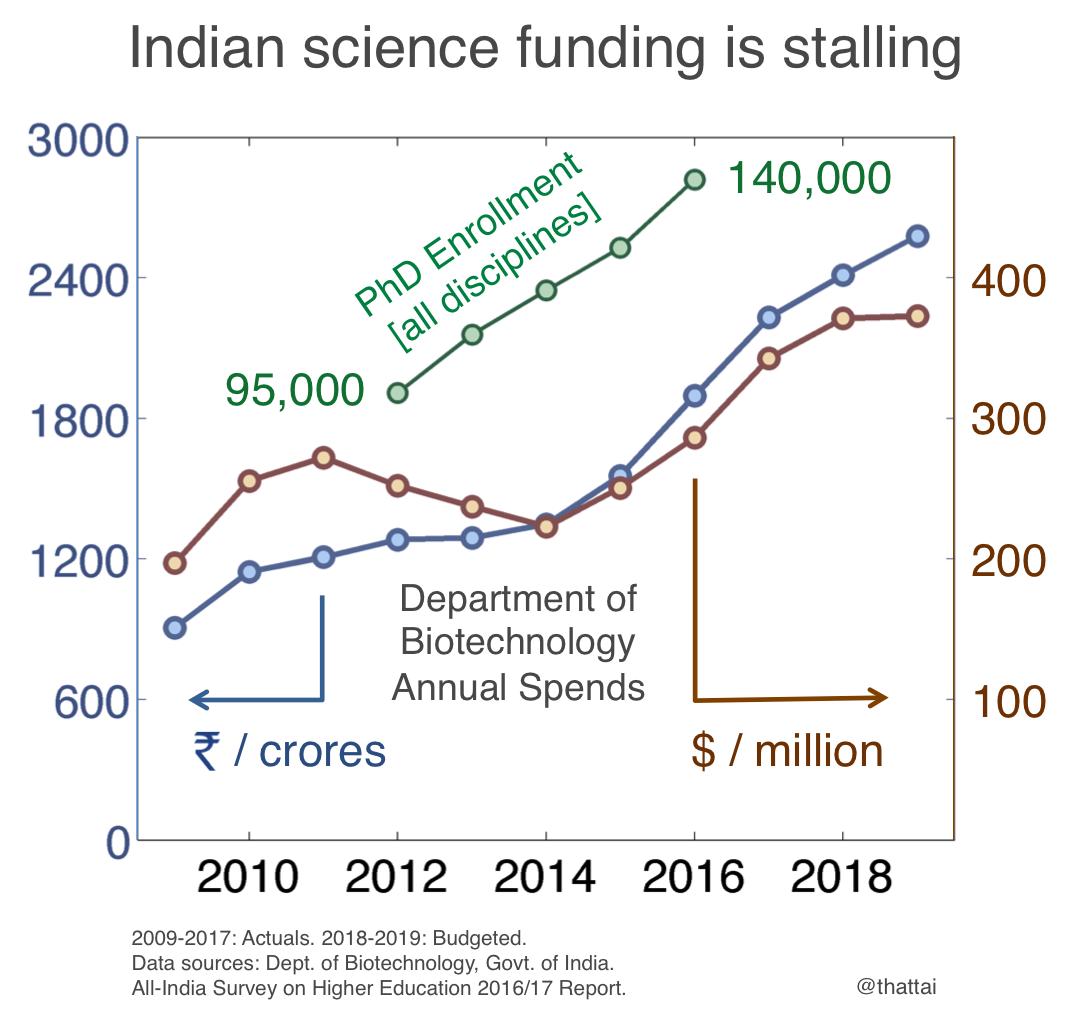
Accidental biologist. Tweeting about cool biology, science in India, art/science engagement.
How to get URL link on X (Twitter) App




 “R0” is the average number of new infections that would be caused by one infected individual, assuming nobody is immune. This depends both on behaviour and viral biology.
“R0” is the average number of new infections that would be caused by one infected individual, assuming nobody is immune. This depends both on behaviour and viral biology.

 The novel coronavirus originated in Wuhan. So *every* case in India must have arisen, via a chain of contacts, from Wuhan. Therefore, *every* case in India involves an international traveller as part of the chain of infection. This is a matter of logic, not epidemiology.
The novel coronavirus originated in Wuhan. So *every* case in India must have arisen, via a chain of contacts, from Wuhan. Therefore, *every* case in India involves an international traveller as part of the chain of infection. This is a matter of logic, not epidemiology.
 Assume the ideal case: don't consider asymptomatic carriers, let test results be instant.
Assume the ideal case: don't consider asymptomatic carriers, let test results be instant.
 A science journalist would have read the paper and spoken to the authors, rather indulging in speculation in the midst of a public health crisis. As @NCBS_Bangalore was not given a chance to respond, we have issued a clarification, covered by @1amnerd.
A science journalist would have read the paper and spoken to the authors, rather indulging in speculation in the midst of a public health crisis. As @NCBS_Bangalore was not given a chance to respond, we have issued a clarification, covered by @1amnerd.
 Knowing how cells work, it's not surprising most traits are "complex": they depend on 1000s of genes:
Knowing how cells work, it's not surprising most traits are "complex": they depend on 1000s of genes:
 There are many reasons the nominal cost of research goes up:
There are many reasons the nominal cost of research goes up:
https://twitter.com/EricTopol/status/1066887338964398081Lots of focus on CRISPR "off-target effects" (when the target gene is edited, some other DNA might also be accidentally modified). This suggests that once this tech works without errors, we should go full steam ahead. Let me explain: bad tech is not why this is controversial. 2/n